
Dementia is a syndrome associated with many neurodegenerative diseases, characterized by a general decline in cognitive abilities that impacts a person's ability to perform everyday activities. This typically involves problems with memory, thinking, behavior, and motor control. Aside from memory impairment and a disruption in thought patterns, the most common symptoms of dementia include emotional problems, difficulties with language, and decreased motivation. The symptoms may be described as occurring in a continuum over several stages. Dementia ultimately has a significant effect on the individual, their caregivers, and their social relationships in general. A diagnosis of dementia requires the observation of a change from a person's usual mental functioning and a greater cognitive decline than might be caused by the normal aging process.

Alzheimer's Society is a United Kingdom care and research charity for people with dementia and their carers. It operates in England, Wales and Northern Ireland, while its sister charities Alzheimer Scotland and Alzheimer Society of Ireland cover Scotland and the Republic of Ireland respectively.
The USC Leonard Davis School of Gerontology is one of the seventeen academic divisions of the University of Southern California in Los Angeles, focusing on undergraduate and graduate programs in gerontology.
The Alzheimer's Association is a nonprofit voluntary health organization that focuses on Alzheimer's disease care, support and research.
The Alzheimer Society of Ontario (ASO) is a care and research charity committed to helping people living with Alzheimer's disease and other dementias by:
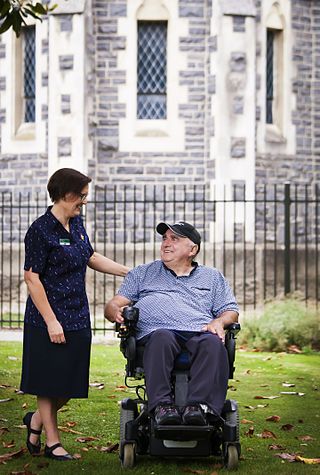
A caregiver, carer or support worker is a paid or unpaid person who helps an individual with activities of daily living. Caregivers who are members of a care recipient's family or social network, and who may have no specific professional training, are often described as informal caregivers. Caregivers most commonly assist with impairments related to old age, disability, a disease, or a mental disorder.
As populations age, caring for people with dementia has become more common. Elderly caregiving may consist of formal care and informal care. Formal care involves the services of community and medical partners, while informal care involves the support of family, friends, and local communities. In most mild-to-medium cases of dementia, the caregiver is a spouse or an adult child. Over a period of time, more professional care in the form of nursing and other supportive care may be required medically, whether at home or in a long-term care facility. There is evidence to show that case management can improve care for individuals with dementia and the experience of their caregivers. Furthermore, case management may reduce overall costs and institutional care in the medium term. Millions of people living in the United States take care of a friend or family member with Alzheimer’s disease or a related dementia.
Family caregivers are "relatives, friends, or neighbors who provide assistance related to an underlying physical or mental disability for at-home care delivery and assist in the activities of daily living (ADLs) who are unpaid and have no formal training to provide those services."
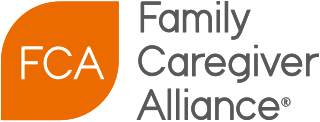
Family Caregiver Alliance (FCA) is a national nonprofit caregiver support organization headquartered in San Francisco, California. FCA's purpose is to "improve the quality of life for caregivers and the people who receive their care."

The Alzheimer Society of Canada (ASC) is a Canadian health charity for people living with Alzheimer's disease and other dementias. Active in communities right across Canada, the Society partners with Alzheimer Societies in every Canadian province to offer information, support and education programs for people with dementia, their families and caregivers. The Alzheimer Society of Canada acts as the national voice for the thousands of Canadians living with dementia and advocates on their behalf for positive change. The Society also funds young and established Canadian researchers working to find the causes and a cure through the Alzheimer Society Research Program.
Memory Bridge, founded in 2004 as The Foundation for Alzheimer's and Cultural Memory, is an American nonprofit organization that creates programs that connect people with Alzheimer's disease to family, friends, and other people in their local community.
Caregiver syndrome or caregiver stress is a condition that strongly manifests exhaustion, anger, rage, or guilt resulting from unrelieved caring for a chronically ill patient. This condition is not listed in the United States' Diagnostic and Statistical Manual of Mental Disorders, although the term is often used by many healthcare professionals in that country. The equivalent used in many other countries, the ICD-11, does include the condition.
The Alzheimer's Association, Central New York Chapter, incorporated on August 1, 1982, as the Alzheimer's Disease and Related Disorders Association, Inc., is a non-profit voluntary health organization which focuses on care, support and research for Alzheimer's disease. The organization is a chapter affiliated with the national Alzheimer's Association.
The Society for the Arts in Dementia Care is a non-profit organisation, with branches in Canada and Australia, dedicated to knowledge dissemination and education that focuses on improving the quality of lives of seniors living with dementia by using the visual and performing arts.
Gary M. Radin is an American designer, philanthropist and author. Radin heads up the creative studio GMRdesign, is co-editor of the book "What If It's Not Alzheimer's? - A Caregiver's Guide to Dementia" and co-founder of a not-for-profit. He currently resides in the Philadelphia area and works nationally.
Caregiving by country is the regional variation of caregiving practices as distinguished among countries.
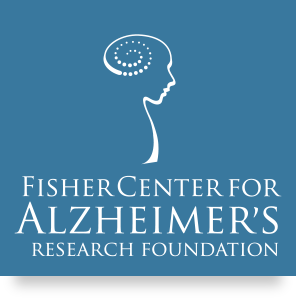
The Fisher Center for Alzheimer's Research Foundation is an American nonprofit organization that supports research into the causes and treatment of Alzheimer's disease. The organization's mission is to "understand the causes of Alzheimer's disease, improve the care of people living with it, and find a cure." The Foundation is funded through donations from the public.

Dementia and Alzheimer's disease in Australia is a major health issue. Alzheimer's disease is the most common type of dementia in Australia. Dementia is an ever-increasing challenge as the population ages and life expectancy increases. As a consequence, there is an expected increase in the number of people with dementia, posing countless challenges to carers and the health and aged care systems. In 2018, an estimated 376,000 people had dementia; this number is expected to increase to 550,000 by 2030 and triple to 900,000 by 2050. The dementia death rate is increasing, resulting in the shift from fourth to second leading cause of death from 2006 to 2015. It is expected to become the leading cause of death over the next number of years. In 2011, it was the fourth leading cause of disease burden and third leading cause of disability burden. This is expected to remain the same until at least 2020.
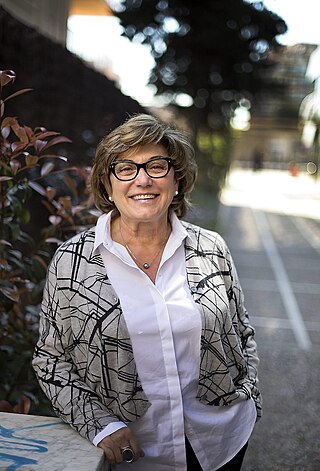
Mercè Boada y Rovira is a Catalan neurologist. She has dedicated her professional career to neurodegenerative diseases. More specifically, dementia and Alzheimer's disease. She was a co-founder of the ACE Foundation, a private non-profit entity dedicated to diagnosis, treatment, research, and helping people with Alzheimer's and their families. Boada received the "Creu de Sant Jordi", Catalonia's highest honor, in 2016.
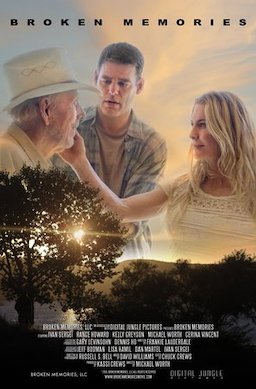
Broken Memories is a 2017 American drama film written by Frankie Lauderdale, directed by Michael Worth, and distributed by Freestyle Digital Media. The film stars Ivan Sergei, Rance Howard, Kelly Greyson and Cerina Vincent. The film premiered at the Writers Guild Theater, Beverly Hills on Tuesday, November 14, 2017, and included appearances of Ron Howard and Bryce Dallas Howard.









